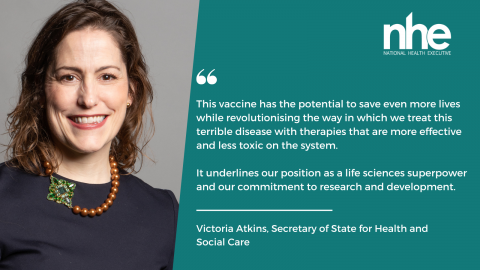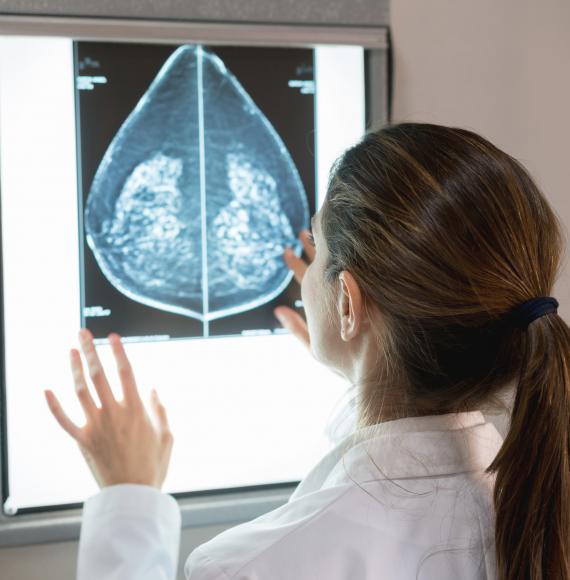The first NHS patients have received an experimental vaccine which health leaders think could revolutionise cancer care and treatment.
The therapy is being delivered using mRNA technology and will target melanoma, lung cancer and other ‘solid tumour’ cancers.
Given this is a phase one/two trial, researchers will only be assessing if the new mRNA therapy is safe and tolerable for patients – whether that be on its own or in combination with pembrolizumab.
Researchers will investigate whether the combination can shrink certain types of skin and lung cancer tumours.
Experts hope the vaccine can become another option for difficult-to-treat cancers, if it is found to be viable.

The treatment works by training the body to recognise common biomarkers in tumours, with the goal of ultimately stimulating the immune system to fight against these cells and perhaps also eliminate cells that supress this response.
Those who receive the treatment, which is known as mRNA-4359, will be followed-up with for 34 months.
Testing in cell and animal models gave researchers initial evidence that mRNA-4359 could impact the immune system, which gave a basis for further clinical trials.
NHS England’s national clinical director for cancer, Professor Peter Johnson, described the news as a “brilliant example” of the “pioneering” work being done across the health service.
He said: “The NHS is at the vanguard of trials of cancer vaccines, which could be revolutionary if we are successful in vaccinating people against their own cancers to prevent them growing back after treatment.”
Imperial College London and Imperial College Healthcare NHS Trust are spearheading the UK leg of what is a global trial, which will recruit patients for the next three years.
Dr David Pinato, a clinical scientist at Imperial College London and trial investigator, said: “New mRNA-based cancer immunotherapies, such as mRNA-4359, offer a new avenue for recruiting the patient’s own immune system to fight their cancer.”
Dr Pinato added: “This research is still in the early stages and may be a number of years from being available to patients, but this trial is laying crucial groundwork that is moving us closer towards new therapies that are potentially less toxic and more precise.”
As the landmark news marks World Cancer Day, data shows that almost one in two people in the UK will be diagnosed with cancer in their lifetime.
The trial is being sponsored by Moderna as part of its 10-year partnership with the government, which will bring the latest mRNA technology to the UK along with substantial research and development.
Image credit: iStock



















